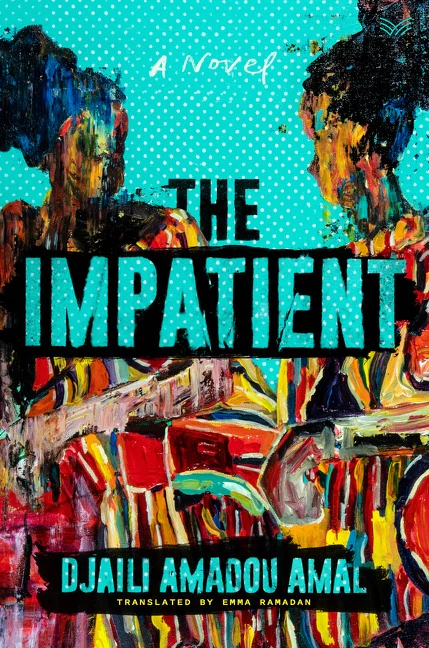
The Impatient
There are some books that I appreciate above all for their political intentions. This is how I feel about the novel The Impatient by Djaïli Amadou Amal (translated by Emma Ramadan). The Cameroonian writer, who belongs to the Fulani culture, has had bad marital experiences and now uses them as material for her literature and as a drive for her activism. At the age of 17, she was forced into marriage with a much older man, and in her second marriage she lived in a strictly regulated polygamous household with a violent man. She was told by relatives that all she had to do was be patient and everything would run its correct course. Amal sees this differently and her third novel The Impatient directly attacks this kind of absolute self-sacrifice.
In three parts, three women – Ramla, Hindou and Safira – recount their fates in their marriages in the first-person perspective. Ramla is married against her will to an older man, although she would rather become a pharmacist. She becomes a second wife, because the man has already been living in a marriage with Safira for 20 years, who now does everything in her power to ensure that Ramla – her rival – is cast out. Polygamy is widespread in Fulani culture. Hindou, Ramla’s half-sister, is forced to marry her brutal cousin who drinks and takes drugs. Women are mainly portrayed as victims of a patriarchal system that is so oppressive that they have little opportunity for resistance. Worse, many female secondary characters act no less hostile towards the protagonists than the men. The hopelessness that seems to predetermine their possible roles in society causes makes them to come to the conclusion that it is best to play along in the system, as is expected of them. Although the narrative perspective switches between characters, the book sometimes feels a bit one-dimensional because their suffering, thoughts and voices are so similar. This narrative style reminds me of Jasmina Kuhnke’s novel Schwarzes Herz (Black Heart – not translated into English yet). Although I would have liked a little more variety in perspective at times, Amal, like Kuhnke, focuses on a very specific world of experience. Even more, Amal emphasises through these three comparable fates that these are not just one-off occurrences.
The title, The Impatient, suggests that these women will surely not hold out much longer, nor surrender to their fate without a fight. Indeed, there are small attempts at resistance, but – I apologise for the spoiler – these are not necessarily successful, or worse, the resistance happens at the expense of other women. This book left me unsatisfied in places, which ultimately means there are many points I would like to discuss. Perhaps this is how Amal achieved her political goal with this book, because I may not be the only reader who feels this way, and hopefully the issues she raises will get the attention they deserve.
Order the book here and support us! The work behind poco.lit. is done by us – Anna und Lucy. If you’d like to order this book and want to support us at the same time, you can do so from here and we will get a small commission – but the price you pay will be unaffected.

